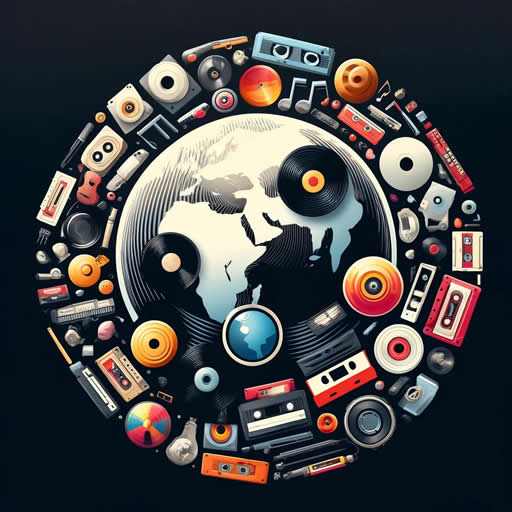Record Store Day: A Celebration of Vinyl and Independent Music Stores
Record Store Day (RSD) is an annual event that unites vinyl enthusiasts, independent record shops, and artists worldwide. Founded in 2007, it serves as a celebration of music culture, particularly focused on the resurgence of vinyl records. Held on one Saturday each April, and often with additional dates in the fall, RSD draws attention to the importance of independently owned record stores and their impact on music communities. From exclusive vinyl releases to live performances, the event has become a pivotal moment for collectors and music lovers.
History of Record Store Day
Record Store Day began as an initiative to support independent record stores, which had been struggling against the rise of digital music and large online retailers. Its goal was to remind people of the cultural value these stores bring to their communities, offering a physical space where people could connect over their shared love of music. The inaugural event in 2008 featured special vinyl releases and live in-store performances, setting the tone for what would become a global phenomenon.
Since its inception, RSD has expanded across continents, celebrated by thousands of stores in countries around the world. It’s not only about shopping but also about fostering a deeper appreciation for physical music formats and the role independent shops play in preserving music history.
The Role of Exclusive Releases
A major draw of Record Store Day is the exclusive vinyl releases. Each year, artists, both new and legendary, partner with independent stores to release limited-edition albums, EPs, and singles, many of which are unavailable anywhere else. These limited releases include rare tracks, live performances, and reissues of classic albums, often pressed on colored vinyl or with unique artwork.
For collectors, this is a highlight of the day. Record Store Day releases can become prized possessions due to their limited nature, increasing their value in the resale market. More importantly, they offer fans a unique way to engage with their favorite artists and discover new music.
Examples of Notable RSD Releases
- David Bowie’s “Welcome to the Blackout” (2018) – A live album recorded during his 1978 tour, released exclusively for RSD.
- The White Stripes’ “Get Behind Me Satan” (2015) – A rare vinyl edition of the album, unavailable in that format for many years.
- Taylor Swift’s RSD releases – Swift, as an RSD ambassador in 2022, dropped exclusive vinyls that fueled massive attention from both music and non-music collectors.
These releases often spark early morning lines and anticipation among collectors, eager to get their hands on something truly special.
Supporting Independent Record Stores
Independent record stores are at the heart of Record Store Day. These shops represent more than just retail outlets; they are community hubs where people gather to share music, ideas, and experiences. Unlike large chains or online retailers, independent stores often have staff who are passionate about music and offer personalized recommendations, fostering a deeper connection between artists and listeners.
The event also brings economic benefits to these stores. For many, Record Store Day provides a significant financial boost, helping to sustain them throughout the year. Beyond the sales, though, RSD highlights the importance of supporting small businesses, especially in the context of the shifting music industry landscape.
The Impact of Vinyl’s Resurgence
Vinyl records, long considered obsolete in the digital age, have experienced a resurgence in recent years, and Record Store Day has played a key role in this revival. Music lovers are increasingly drawn to the tangible experience of vinyl—its sound quality, the large-format artwork, and the ritual of placing a record on a turntable. For younger generations, vinyl represents a return to the roots of music listening, offering an alternative to the intangible nature of streaming services.
Since 2007, vinyl sales have consistently increased, and for the past several years, vinyl has outsold CDs in many markets. This resurgence has been powered by both longtime collectors and a new generation of listeners who appreciate the format’s warmth and authenticity.
Community and Live Events
Aside from the shopping experience, Record Store Day also includes live performances, artist signings, and other community-centered activities. Many stores host in-store concerts featuring both local musicians and internationally known artists. These events foster a sense of camaraderie among attendees, whether they’re seasoned collectors or people simply looking to explore the world of vinyl for the first time.
Record Store Day is as much about socializing as it is about shopping. Fans swap stories, discover new artists, and share recommendations, all while supporting the local businesses that keep the music scene thriving.
Challenges and Criticisms
Despite its popularity, Record Store Day is not without its critics. Some argue that the event has become too commercialized, with major labels dominating the exclusive releases and overshadowing the independent spirit that RSD originally championed. Additionally, the high demand for limited releases can create stress for both store owners and customers, leading to frustration when items sell out quickly or are resold at inflated prices online.
Independent stores also face logistical challenges, as they must order records months in advance without knowing how many will be available or in demand. For some, the pressures of Record Store Day outweigh the benefits, and a few have opted out of the event entirely.
Record Store Day remains a crucial celebration of vinyl culture and the enduring importance of independent record stores. For one day each year, these shops take center stage, offering fans a chance to engage with music in a meaningful, tactile way. Whether you’re a seasoned collector or someone rediscovering the joys of vinyl, Record Store Day offers a unique opportunity to celebrate the music, the medium, and the community that supports it all.
